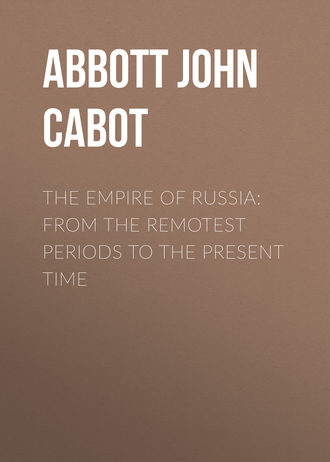The Empire of Russia: From the Remotest Periods to the Present Time
 полная версия
полная версияThe Empire of Russia: From the Remotest Periods to the Present Time
Жанр: учебная и научная литературазарубежная классиказарубежная старинная литературазарубежная образовательная литератураисторическая научная и учебная литератураобщая историязнания и навыки
Язык: Английский
Год издания: 2018
Добавлена:
Настройки чтения
Размер шрифта
Высота строк
Поля









